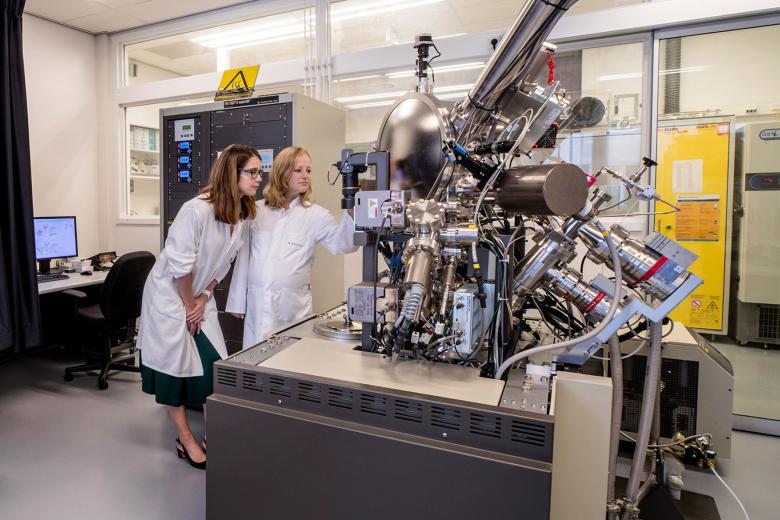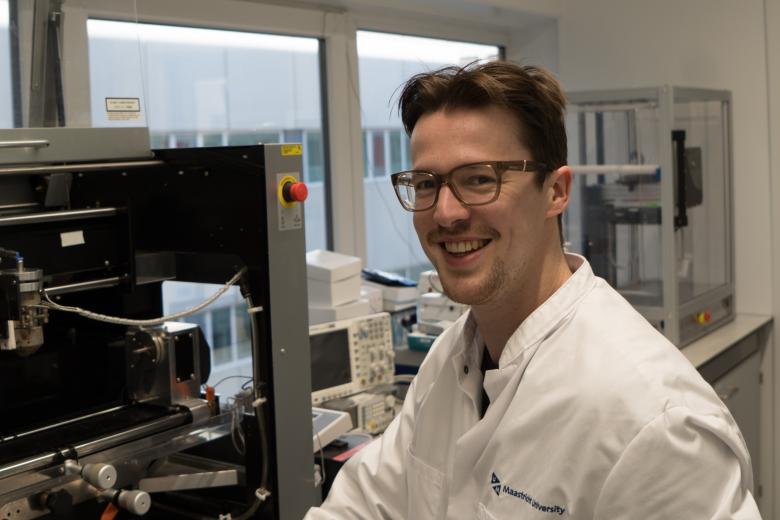Making ends meet and health: conducting research together with citizens
At the Faculty of Health, Medicine and Life Sciences, staff and students strive to make a difference. For instance, Caroline focuses on sun protection, and Shika studies identity safety in education. In 'Nice to meet you' these individuals introduce themselves and share their work within FHML.
Did you know people in lower socioeconomic positions live on average six years shorter and fifteen years in poorer health than those in higher socioeconomic positions? These significant disparities can only be reduced by working together with and listening to the people who experience them, according to Latifa Abidi. At the Department of Health Promotion within CAPHRI she conducts research in collaboration with people from lower socio-economic positions.
Latifa studied psychology and cognitive and clinical neuroscience, with a specialisation in psychopathology. After her studies, she joined CAPHRI as a researcher and teacher. Her research focuses on the influence of socio-economic problems on health. In her free time, Latifa mostly practices kickboxing, but also enjoys watching Netflix and likes to play video games. “I enjoy rogue-lite games and I have played Dungeons & Dragons before, but it has been a while since I last did,” she laughs.
Health disparities
Latifa’s research focuses on people in lower socio-economic positions. “This is a very broad group,” she says. “In general, these are people who experience poverty, struggle to make ends meet, or have debts. We know that these people live, on average, 6 years shorter and 15 years in worse health than those in higher socio-economic positions. These are huge health disparities. I am convinced that we can only reduce these by working together with and listening to the people who experience these disparities.”
Distance
The first step in this is reaching these people. “This is where things often already go wrong,” says Latifa. “We know that researchers often find it difficult to reach and engage people from lower socio-economic positions in research. Additionally, these people often feel unheard and misunderstood, which is one of the reasons they feel there is a distance. At the moment, science is still very much for and by people who are already relatively well off. That is why I think it is crucial to collaborate more with people in lower socio-economic positions, and people who are underrepresented or marginalised.”
Advisory groups
Together with her colleagues, Latifa has established two citizen advisory groups in Maastricht, where citizens and researchers work together. One group is with people who struggle to make ends meet and the other is with people who have difficulty understanding health information. “We meet with these groups five times a year,” she says. “We learn from their experiences, perspectives, and advice. This makes our research better and more relevant, and the results become more applicable to this group. These advisory groups are structural, so we can continue to seek their advice and collaborate for a long time. After each meeting, we write a blog with a short reflection on the session. I think it is important to communicate about our research and collaborations. That way, others can benefit from understanding what works well and what does not as much.”
I hope to give a voice to people who currently feel unheard, unseen, or unrepresented.
Citizen scientists
As of January, one of the citizen advisory groups has grown into a citizen science group, funded by the Dutch Heart Foundation and ZonMw. This means the advisory group members are now citizen scientists. “This means that they not only advise us, but really collaborate with us to conduct research,” Latifa explains. “Together we investigate the relationship between cardiovascular diseases and experiencing difficulties in making ends meet. The citizen scientists are experts by experience, often in both areas. From their experiences, knowledge, and their desire to better understand things, we conduct this research together. It is a great project, in which we collaborate much more intensively and learn from each other.”
Positive change
What does Latifa hope her research will ultimately lead to? “I hope to give a voice to people who currently feel unheard, unseen, or unrepresented, and to those who have not been given the same opportunities in life,” she says. “And not just a voice, but also possibilities for positive change in their lives. That may be different for everyone, but fundamentally it is about improving quality of life, well-being, and better health.”
Text: Joëlle van Wissen
Photo: Fotostudio Foto Rijkies
Also read
-
UM to play a more prominent role in Dutch scientific infrastructure
Eleven consortia from various scientific disciplines are set to launch projects of great value to science. The Dutch government is making a total of €197 million available for this purpose. Scientists from Maastricht University (UM) are closely involved in seven of the eleven projects.

-
17 million for Dutch mega cohort: working together to build healthier ageing
MUMC+ is main applicant in the NCC: a unique research infrastructure with data from almost half a million Dutch citizens.
-
Letting bone and cartilage repair themselves
Tim ten Brink focuses on developing implants for damaged bone and cartilage, so eventually there is less need for invasive surgery.
